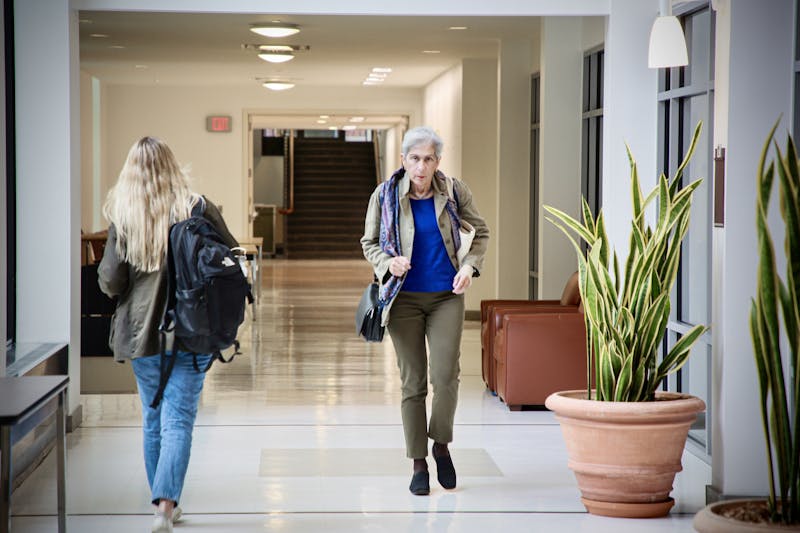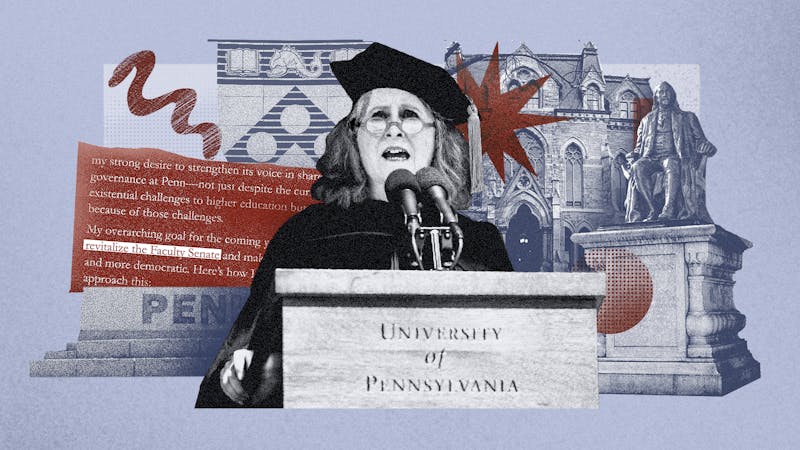
David Lazar is out for blood. The College junior and president of the Tau Epsilon Phi fraternity understands the need for blood donation more than most. As a child, he watched his grandmother undergo massive blood transfusions and only after her near-death experience did their bond really mature. The episode left its mark. Lazar is now a major supporter of blood donation -- having donated around 10 times himself -- and encourages others to help as well. "If I can give to another family what someone else's generosity gave to me, I think I've fulfilled my responsibility," Lazar said. Last Wednesday, Lazar helped fulfill that responsibility by participating in an on-campus Red Cross blood drive. A roving "bloodmobile," something like a blood depot on wheels, transformed the TEP house into a calm, hospital-like volunteer center. At a bloodmobile station, students declared healthy enough to donate are ushered over to a table stocked with pretzels and apple juice. Soothing music plays while they recline on portable beds -- each individual eventually giving one pint of blood. Bloodmobiles are the backbone for the area's blood supply. According to Malayna Johnson, communications manager for Red Cross Blood Services in the Penn-Jersey region, bloodmobiles journeying to schools, companies and churches bring back about 90 percent of donations. And Penn students figure big into that number. "Overall, out of all the Big 5 colleges, Penn has been the biggest contributor," said Emily Ho, account manager for the Red Cross. One person's pint of blood reaches far into the community. According to Johnson, an individual can save up to three lives. "Every minute of every day, someone needs blood," she said. Donations typically go to accident victims, cancer patients, patients undergoing operations -- such as Lazar's grandmother -- and premature infants. Although there is no shortage in the national blood supply now, there is always the need for a safe reservoir of blood. But, surprisingly, only 5 percent of people eligible to donate actually do take the time to roll up their sleeves and give. Many simply don't understand the procedure. "Some people say, 'I'm afraid it's going to hurt,'" Johnson said. In reality, most donors feel only the initial prick of the needle and experience no discomfort for the rest of the process. Bloodmobile Nurse Manager Donna Zanneo added that only two percent of donors react to "nervousness." Others don't donate for fear of contracting AIDS. Johnson quickly debunked that myth. "There is no chance [that a donor] will get any disease," she said. Technicians use each needle and blood bag only once. Staff suit up in gloves to prevent the transmission of germs. But the primary reason people don't donate? According to Johnson -- "They haven't been asked." Ho, too, recognized the problem. "We have a lot of enthusiasm out there, but not enough space," she said, adding that many students can't fit a trip to the Red Cross in between classes, partying and MCATs. Wandering bloodmobiles eliminate this excuse. And given the opportunity, many students jump at the chance to save lives. College sophomore Alexander Fatemi gave a part of himself last week. "I was curious, and it would be helpful," he said. Alex Ropper, the InterFraternity Council vice president for community service and a TEP brother, organized last week's drive. The Panhellenic Council and the Bicultural InterGreek Council also sponsored the event. "It's been very successful in the past with Greek fraternities, and it saves lives," Ropper explained. Although the drive was heavily promoted within the Greek system, Ropper was careful to note that all were welcome. "It's good for Greeks because we're a big group of people -- it's pretty much all about the numbers," he added. Overall, Ropper said the drive was a success. "The brothers loved it -- there was a lot of participation." Students said they joined the blood bandwagon for various reasons, but they all shared one key motivation: the desire to help others in need. Engineering junior Jason Feldman was following in his parents' footsteps when he dropped by the TEP house. It was "something my mom always did," Feldman said. "So simple, and it takes nothing from me." College junior David Gonzalez agreed. A first-time donor -- his tattoo made him ineligible to give blood for a year -- Gonzalez said he was there "just to help other people." But the bottom line is not where or how someone donates, according to Johnson. "When you give blood, you save lives. You never know who you're going to be helping."
The Daily Pennsylvanian is an independent, student-run newspaper. Please consider making a donation to support the coverage that shapes the University. Your generosity ensures a future of strong journalism at Penn.
DonatePlease note All comments are eligible for publication in The Daily Pennsylvanian.







